Crypto Broker
MyFastBroker Crypto Brokers: The Best Way to Trade Crypto

Introduction
Cryptocurrency trading is becoming more popular every day. People want a safe and easy way to buy, sell, and trade digital currencies like Bitcoin, Ethereum, and others. In this blog, we’ll explore everything you need to know about MyFastBroker Crypto Brokers and how to get started.
What are Crypto Brokers?
A crypto broker is a service that helps you trade cryptocurrencies. They act as a middleman, connecting buyers and sellers. Crypto brokers make it easier to buy, sell, and store digital currencies. Instead of figuring out complex trading platforms, you can rely on brokers to handle the hard work for you.

When choosing a broker, consider platforms like MyFastBroker Crypto Brokers, which simplify trading and offer valuable insights.
Types of Crypto Brokers
- Full-Service Brokers: Provide trading advice and tools.
- Discount Brokers: Offer low fees but fewer features.
- Online Brokers: Fully digital platforms.
- Specialized Brokers: Focus on niche markets or specific cryptocurrencies.
Top Crypto Brokers in the USA
Choosing the right crypto broker is crucial for a seamless trading experience. Here’s a list of some of the top crypto brokers in the USA and what they offer:
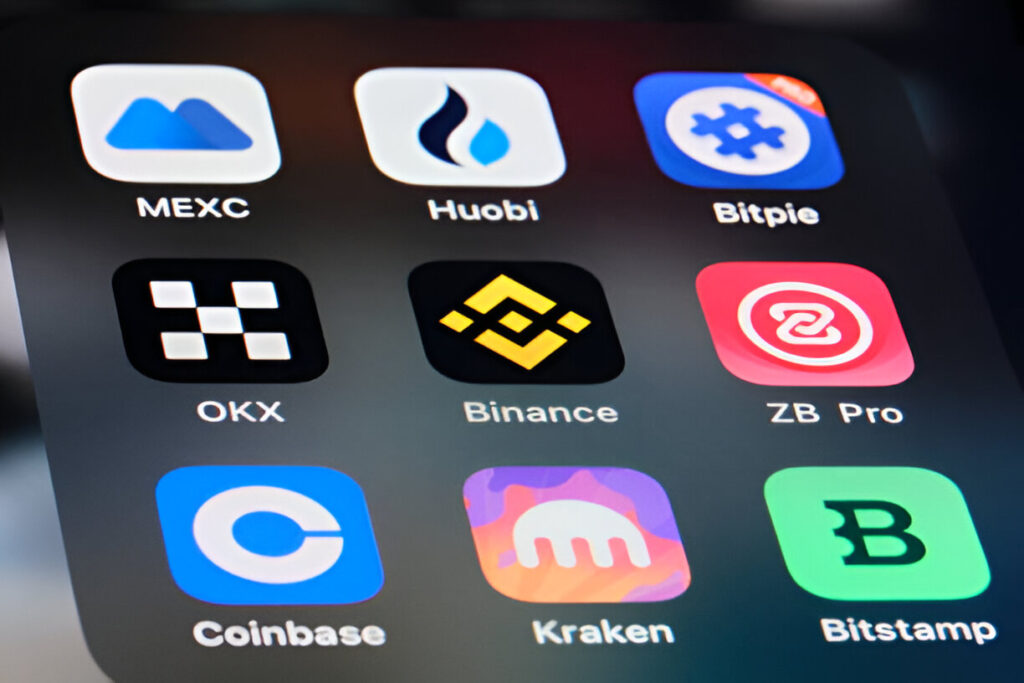
1. Coinbase
Coinbase is one of the most popular crypto brokers in the USA. Known for its user-friendly interface and robust security features, Coinbase supports a wide range of cryptocurrencies and provides educational resources for new traders.
2. Binance.US
Binance.US offers low trading fees and access to a large variety of cryptocurrencies. It’s suitable for both beginners and experienced traders, with advanced trading tools and a sleek mobile app.
3. Kraken
Kraken is a reliable platform with advanced features for seasoned traders. It supports margin trading and futures while maintaining high-security standards.
4. eToro
eToro is renowned for its social trading feature, allowing users to copy the strategies of successful traders. It’s beginner-friendly and offers a range of cryptocurrencies.
5. Gemini
Gemini stands out for its focus on security and compliance. It is a regulated exchange and offers insurance on digital assets stored in its wallets.
6. Robinhood
Robinhood makes cryptocurrency trading accessible with its zero-commission structure. It’s an excellent choice for beginners looking to trade crypto alongside stocks and ETFs.
Top Cryptocurrencies to Trade

1. Bitcoin (BTC)
The first and most popular cryptocurrency. Known as digital gold, Bitcoin is a staple in every trader’s portfolio.
2. Ethereum (ETH)
Famous for its smart contract capabilities, Ethereum powers decentralized applications and is a top choice for developers and traders.
3. Litecoin (LTC)
A faster, cheaper alternative to Bitcoin, Litecoin offers quick transaction times and low fees.
4. Ripple (XRP)
Designed for fast, low-cost international payments, Ripple is widely used by financial institutions.
5. Cardano (ADA)
Focused on sustainability and scalability, Cardano is an eco-friendly blockchain platform.
Understanding Crypto Wallets and Their Importance
To succeed in cryptocurrency trading, having a secure and reliable wallet is crucial. A crypto wallet stores your digital assets and ensures they are safe from unauthorized access. Let’s explore the different types of wallets and their features:
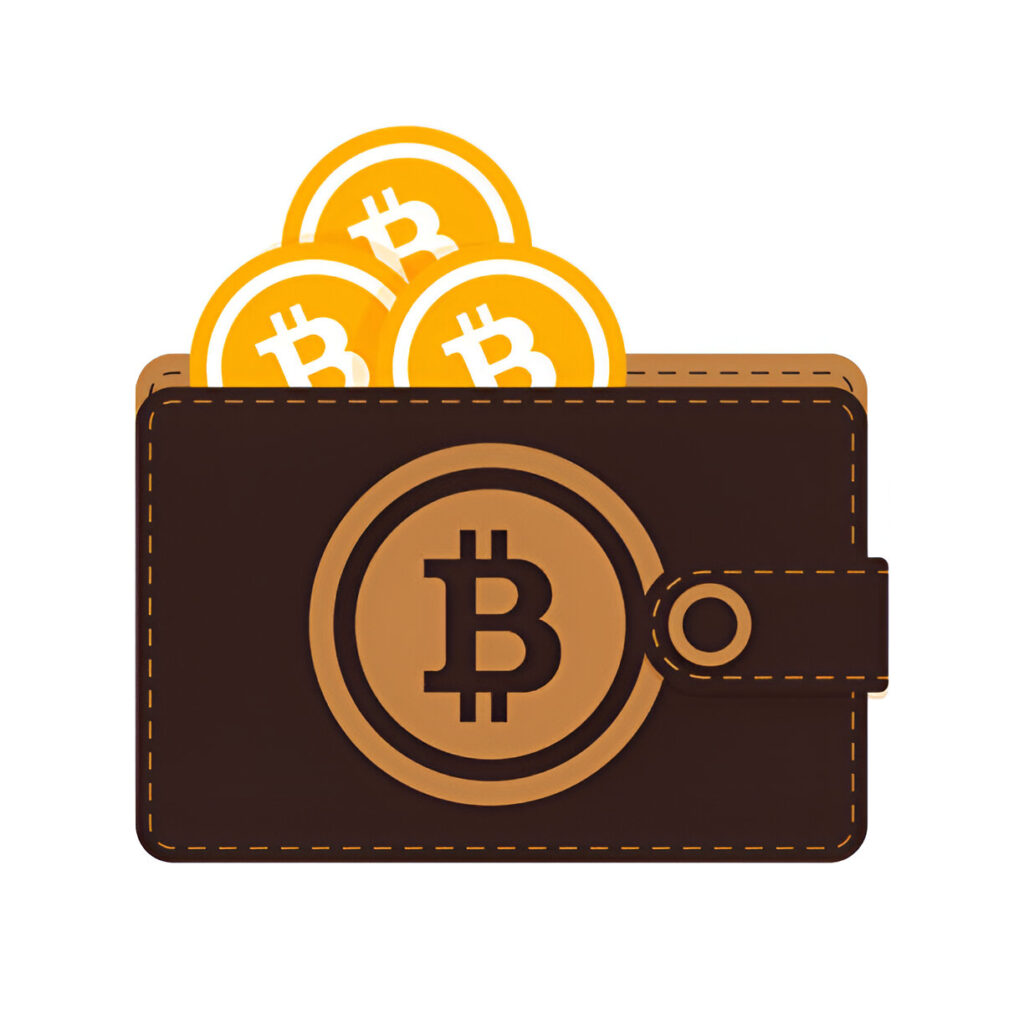
1. Hot Wallets
Hot wallets are connected to the internet, making them easily accessible for frequent trading. Examples include mobile wallets, desktop wallets, and web wallets. While convenient, they are more vulnerable to cyber threats.
2. Cold Wallets
Cold wallets are offline storage solutions, such as hardware wallets or paper wallets. They are ideal for long-term storage and provide higher security against hacking attempts.
3. Multi-Signature Wallets
These wallets require multiple private keys to authorize transactions, adding an extra layer of security. They are commonly used for joint accounts or institutional investors.
4. Custodial Wallets
Custodial wallets are managed by third-party services like exchanges or brokers. While user-friendly, they rely on the provider’s security measures.
5. Non-Custodial Wallets
Non-custodial wallets give users complete control over their private keys and funds. These wallets are ideal for those who prioritize security and independence.
Tips for Choosing the Right Wallet
- Assess Your Needs: Determine whether you need a wallet for daily trading or long-term storage.
- Research Security Features: Look for wallets with strong encryption and backup options.
- Compatibility: Ensure the wallet supports the cryptocurrencies you plan to trade.
- Reputation: Choose wallets with positive reviews and a history of reliability.
By understanding and selecting the right wallet, you can enhance your trading experience and safeguard your digital assets.
Common Mistakes to Avoid in Cryptocurrency Trading
1. Ignoring Market Trends
Cryptocurrency markets are highly volatile. Failing to monitor trends and news can lead to poor trading decisions.
2. Over-Investing
Avoid investing more than you can afford to lose. Start with small amounts and increase your investment as you gain experience.
3. Emotional Trading
Letting emotions dictate your trades can lead to losses. Stick to your strategy and avoid impulsive decisions.
4. Neglecting Security
Ensure your account is secure by enabling two-factor authentication and using a strong, unique password.
5. Lack of Diversification
Investing all your funds in a single cryptocurrency increases risk. Diversify your portfolio to mitigate potential losses.
Future Trends in Cryptocurrency Trading
1. Institutional Adoption
Large financial institutions are increasingly entering the cryptocurrency market, bringing more stability and legitimacy to the industry. Companies like Tesla and MicroStrategy have already invested heavily in Bitcoin, signaling broader acceptance.
2. DeFi (Decentralized Finance)
Decentralized Finance is revolutionizing traditional financial systems by offering services like lending and borrowing without intermediaries. Platforms such as Uniswap and Aave are leading the DeFi movement, providing traders with innovative opportunities.
3. Regulatory Developments
Governments worldwide are establishing regulations for cryptocurrencies. The USA, for instance, is focusing on anti-money laundering (AML) measures and tax compliance. Staying updated on these developments is essential for traders.
4. NFT Integration
Non-Fungible Tokens (NFTs) are gaining popularity and are likely to integrate further into cryptocurrency ecosystems. They offer unique investment opportunities in digital art, music, and gaming.
5. Green Cryptocurrencies
As environmental concerns grow, energy-efficient cryptocurrencies like Cardano and Algorand are gaining traction. These coins aim to reduce the environmental impact of blockchain technology.
Advanced Trading Strategies
1. Arbitrage
Arbitrage involves buying a cryptocurrency on one exchange and selling it on another at a higher price. This strategy requires quick execution and knowledge of market discrepancies.
2. Scalping
Scalping focuses on making small, frequent profits by exploiting minor price fluctuations. This strategy requires a fast-paced trading style and a reliable platform like MyFastBroker.
3. Swing Trading
Swing trading involves holding positions for days or weeks to capitalize on larger price movements. It suits traders who can analyze technical patterns and market trends.
4. Dollar-Cost Averaging (DCA)
DCA involves investing a fixed amount regularly, regardless of the cryptocurrency’s price. This approach reduces the impact of market volatility.
FAQs About Crypto Brokers
1. Are crypto brokers safe for trading?
Yes, most reputable brokers, such as MyFastBroker Crypto Brokers, use advanced security measures to protect your funds and personal information.
2. Can I trade Bitcoin with a broker?
Absolutely! Most brokers support Bitcoin and many other cryptocurrencies.
3. What are the fees for using a broker?
Fees vary by broker but are generally affordable compared to traditional trading platforms. MyFastBroker offers competitive rates.
4. Do I need trading experience to use a broker?
No, many brokers are beginner-friendly and provide tools to help you learn.
5. How do I choose the right crypto broker?
Look for a broker with a good reputation, low fees, and features that match your trading needs. MyFastBroker Crypto Brokers is a great option to consider.
6. Can I trade on the go?
Yes, MyFastBroker offers a mobile app, enabling you to trade anytime, anywhere.
7. What are the tax implications of crypto trading?
Cryptocurrency gains are often subject to taxes. Consult a tax professional to ensure compliance with local laws.
Case Study: A Successful Trading Journey
Imagine Sarah, a new trader, who started her crypto journey with MyFastBroker. Using the platform’s educational tools, she learned the basics of trading and diversified her portfolio with Bitcoin, Ethereum, and Cardano. By setting stop-loss orders and practicing DCA, Sarah minimized risks and achieved steady growth over six months. Her success story showcases how the right platform and strategy can make a difference.
Summary
MyFastBroker Crypto Brokers make cryptocurrency trading easy, secure, and accessible for everyone. They provide a user-friendly platform, robust security measures, a wide range of cryptocurrencies, and advanced trading tools. Additionally, their educational resources and customer support make them ideal for both beginners and experienced traders. With MyFastBroker, you can confidently navigate the exciting world of cryptocurrency.
Start your trading journey today with MyFastBroker.

Crypto Broker
MyFastBroker Trading Platforms: Your Path To Success

MyFastBroker Trading Platforms provide in-depth insights into the best trading platforms available today. By understanding their features, security, and tools, traders can make informed decisions and enhance their trading experience.
Trading platforms have revolutionized the financial market, making investing more accessible, fast, and efficient. Whether you are a beginner or an expert, having the right knowledge is crucial for successful trading.
This blog explores the best features, benefits, and strategies associated with trading platforms, helping you maximize your trading potential.
1. Overview of MyFastBroker Trading Platforms
MyFastBroker provides insights and comparisons of various trading platforms. It does not offer trading services but helps traders by reviewing and evaluating different platforms.
With unbiased reviews and expert insights, MyFastBroker ensures that users get the most accurate and up-to-date information about trading platforms. The blog covers key aspects such as ease of use, security, trading features, fees, and customer support, allowing traders to make informed decisions.
2. Why Choose MyFastBroker for Trading Insights?
Selecting the right trading platform is essential for achieving financial success. MyFastBroker helps traders navigate the vast landscape of online trading by offering:
- Expert comparisons of various trading platforms.
- Unbiased reviews to help traders choose the best platform for their needs.
- Educational resources for both beginners and experienced traders.
- Updates on the latest trends in the financial trading industry.
3. Best Trading Platforms in the USA
Finding the right trading platform in the USA is essential for traders looking to maximize their profits. Below is a comparison of some of the top trading platforms available in the USA.

| Trading Platform | Features | Website Link |
|---|---|---|
| eToro | Social trading, commission-free stocks, beginner-friendly | Visit eToro |
| TD Ameritrade | Advanced trading tools, thinkorswim platform, no account minimum | Visit TD Ameritrade |
| Robinhood | Commission-free stock trading, easy-to-use mobile app | Visit Robinhood |
| Interactive Brokers | Low trading fees, wide asset selection, powerful trading tools | Visit Interactive Brokers |
| Fidelity | No commission on stocks and ETFs, research tools, strong customer support | Visit Fidelity |
4. Key Features to Look for in a Trading Platform
| Feature | Description |
|---|---|
| AI Trading Tools | Automated strategies based on market trends. |
| Real-time Market Data | Up-to-date price movements and charts. |
| Secure Transactions | Advanced encryption and fraud protection. |
| Multi-Asset Trading | Trade forex, stocks, crypto, and commodities. |
| User-Friendly Interface | Easy navigation for beginners and experts alike. |
Read More: MyFastBroker Trading Apps – Your Smart Trading Guide
5. How Trading Platforms Work
Trading platforms provide tools that allow users to analyze, trade, and manage their portfolios efficiently. They simplify market entry by offering seamless navigation and one-click trading options.
With real-time analysis tools, traders can predict market trends and execute trades with precision. The mobile-friendly interfaces ensure that users can trade on the go without any disruptions.
6. Understanding Different Market Options Available
| Market Type | Description |
|---|---|
| Stock Trading | Invest in global stocks with real-time market insights. |
| Forex Trading | Trade major and minor currency pairs with high liquidity. |
| Cryptocurrency Trading | Buy and sell Bitcoin, Ethereum, and altcoins securely. |
| Commodities Trading | Diversify with gold, oil, and agricultural products. |
7. Security and Risk Management Features
Security is a key concern when choosing a trading platform. Platforms should offer strong encryption, two-factor authentication (2FA), and fraud protection to ensure traders’ funds remain secure.
Additionally, risk management tools such as stop-loss orders, margin call alerts, and negative balance protection help traders minimize losses and manage their investments effectively.
8. AI-Powered Trading and Automation
Many modern trading platforms incorporate AI-driven solutions that analyze market trends and execute automated trades. These automated strategies help traders minimize human error and capitalize on opportunities with pre-programmed trading strategies.

Read More: MyFastBroker Crypto Brokers – The Best Way to Trade
9. Mobile Trading Capabilities
A mobile-friendly trading platform allows traders to execute orders, monitor portfolios, and access market data anytime, anywhere. The best platforms provide fully functional mobile apps that support fast, secure trading.
10. How to Choose the Right Trading Platform
New traders should look for platforms that offer:
- User-friendly interfaces with easy navigation.
- Educational resources like webinars and guides.
- A demo account to practice without risking real money.
Experienced traders may prioritize:
- Advanced charting tools and indicators.
- Low trading fees and high execution speeds.
- A wide range of assets and market options.
11. Customer Support and Assistance
Reliable customer support is essential when using a trading platform. The best platforms provide 24/7 customer service through live chat, email, and phone, along with a detailed knowledge base and community forums.
12. Common Trading Strategies for Beginners
- Swing Trading: Capitalizing on short- to mid-term price movements.
- Scalping: Making multiple small trades throughout the day.
- Day Trading: Opening and closing positions within the same day.
13. Advanced Trading Tools and Indicators
Professional traders benefit from advanced trading tools such as Fibonacci retracements, Bollinger Bands, and Moving Averages, which help them make data-driven decisions.

14. How to Maximize Profits with the Right Platform
To achieve profitability, traders must focus on market research, risk management, and strategy optimization. Real-time alerts, AI recommendations, and in-depth market analysis can significantly improve success rates.
15. Future Trends in Trading Platforms
- Blockchain Integration: Enhanced security and transparency in transactions.
- AI-Driven Predictive Analysis: Smarter algorithms for better market predictions.
- Decentralized Finance (DeFi) Trading: Expanding opportunities beyond traditional markets.
16. User Testimonials and Reviews
| User | Experience |
|---|---|
| Alex P. | “The real-time data and AI-powered tools helped me maximize profits!” |
| Sophia L. | “Seamless mobile trading makes platform selection easy.” |
| John M. | “Comparing different trading platforms saved me time and money.” |
Summary
- Multiple trading platforms are available, each offering unique features.
- Security, fees, and available assets are key factors when selecting a platform.
- Beginners and experts can benefit from automated trading solutions and real-time market insights. Visit Our Homepage for more insights and detailed reviews on trading platforms.
Frequently Asked Questions (FAQs)
- What is the best trading platform for beginners?
Platforms like eToro and Robinhood are user-friendly and ideal for beginners due to their intuitive interfaces and educational resources. - Do trading platforms charge fees?
Some platforms charge commissions, withdrawal fees, and inactivity fees, while others offer commission-free trading. - How do I ensure a trading platform is secure?
Look for platforms with encryption, two-factor authentication (2FA), and regulatory compliance. - Can I trade cryptocurrencies on these platforms?
Yes, many trading platforms offer cryptocurrency trading along with stocks, forex, and commodities. - What features should I look for in a trading platform?
Key features include AI-powered trading tools, real-time market data, low fees, and a user-friendly interface.
Crypto Broker
MyFastBroker Trading Apps: Your Smart Guide to Trading Success
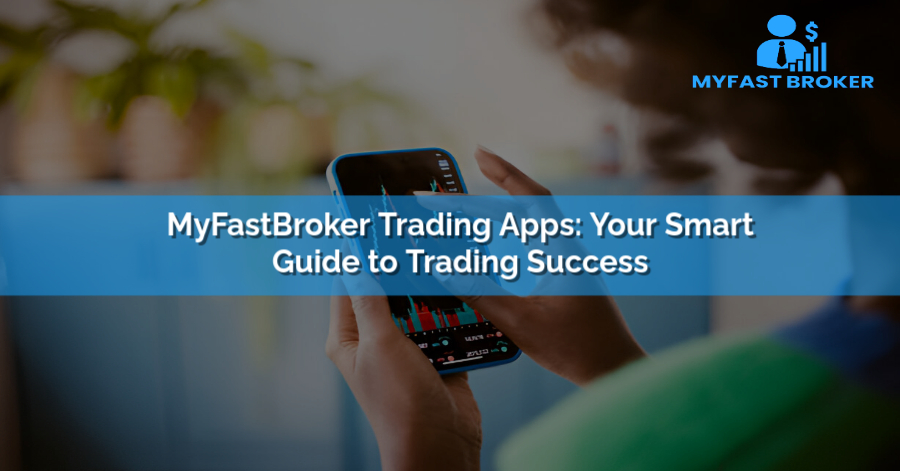
Trading apps have transformed the way individuals engage with financial markets, making investing more accessible than ever before. With just a few taps on your smartphone, you can seamlessly enter the world of stocks, forex, and cryptocurrencies, keeping track of price fluctuations and executing trades in real time.
MyFastBroker offers in-depth insights, unbiased reviews, and expert comparisons to help traders, from beginners to professionals, find the perfect trading platform. Whether you’re looking to get started or optimize your trading experience, this guide will equip you with everything you need to make an informed decision.
1. What is MyFastBroker?
MyFastBroker is an educational platform that provides detailed information about various trading apps. It does not offer trading services but helps traders by reviewing and comparing different platforms. This makes it a valuable resource for both beginners and experienced traders who want to stay updated on the latest trends and technologies in the trading industry.
Through expert analysis and unbiased reviews, MyFastBroker ensures that users get the most accurate and reliable information. The platform covers various aspects such as ease of use, security, trading features, fees, and customer support, allowing traders to make informed decisions about which app to use.
Why Use MyFastBroker?
- It helps traders choose the right trading app based on their needs and experience level.
- Provides unbiased reviews and detailed feature comparisons.
- Keeps traders updated with the latest trends and technological advancements in the market.
- Offers educational resources to improve trading knowledge and skills.
2. Why Are Trading Apps Popular?
Trading apps have gained massive popularity due to their convenience and accessibility. Gone are the days when you needed a desktop computer or had to call a broker to place a trade. Now, with just a smartphone and an internet connection, anyone can trade anytime and anywhere.
Another reason for their popularity is the low barrier to entry. Many apps offer commission-free trading, making it easier for small investors to participate in financial markets. Additionally, the availability of learning resources, demo accounts, and AI-powered trading assistants makes it simpler for new traders to get started without significant financial risks.
Key Benefits of Trading Apps:
| Benefit | Description |
|---|---|
| Instant Access to Markets | Trade stocks, forex, and crypto anytime, anywhere. |
| User-Friendly Interface | Intuitive platforms make trading accessible even for beginners. |
| Low Fees and Commissions | Many apps provide commission-free trades, reducing costs. |
| Educational Resources | Offers tutorials, market insights, and demo accounts for learning. |
| AI-Powered Tools | Automated trading and risk management tools enhance performance. |
3. Types of Trading Apps
There are different types of trading apps catering to various markets. Knowing their differences helps traders make informed decisions. Some apps specialize in one market, while others provide access to multiple financial instruments.
Each type of trading app has unique features suited for different trading goals. Some focus on stock trading, while others are built for forex, cryptocurrencies, or commodities. Below is a detailed comparison of the main types of trading apps:
| Type of Trading App | Features | Best For |
|---|---|---|
| Stock Trading Apps | Buy and sell company shares, access earnings reports, and real-time news. | Long-term investors and day traders. |
| Forex Trading Apps | Trade currency pairs like EUR/USD with leverage and technical indicators. | Forex traders and scalpers. |
| Crypto Trading Apps | Invest in Bitcoin, Ethereum, and other cryptocurrencies with secure wallets. | Crypto investors and day traders. |
| Commodities Trading Apps | Trade assets like gold, oil, and agricultural products. | Traders interested in hedging against inflation. |
| All-in-One Trading Apps | Access multiple markets including stocks, forex, and commodities in one platform. | Investors who want diversified portfolios. |
4. Features to Look for in a Trading App
Choosing the right trading app can be challenging. With so many options available, it’s essential to focus on features that align with your trading needs. A well-designed app should provide a seamless trading experience, accurate market data, and strong security measures.
Beyond basic trading functionalities, advanced features such as AI trading bots, social trading, and copy trading have become increasingly important. Many traders also look for robust research tools and news integrations that help them make timely investment decisions.
| Feature | Importance |
|---|---|
| User Experience | The app should be easy to navigate with an intuitive design. |
| Real-Time Market Data | Live prices, charts, and indicators help traders analyze trends. |
| Security & Regulation | Ensure the app is encrypted and follows financial regulations. |
| Variety of Tradable Assets | More asset choices allow for diversified investments. |
| Order Execution Speed | Fast trade execution prevents slippage and market delays. |
| Customer Support | Reliable support helps resolve issues efficiently. |
5. Best Trading Apps Reviewed by MyFastBroker
MyFastBroker reviews various trading apps based on features, ease of use, and reliability. The blog provides in-depth comparisons and insights to help traders choose the best platform for their needs.
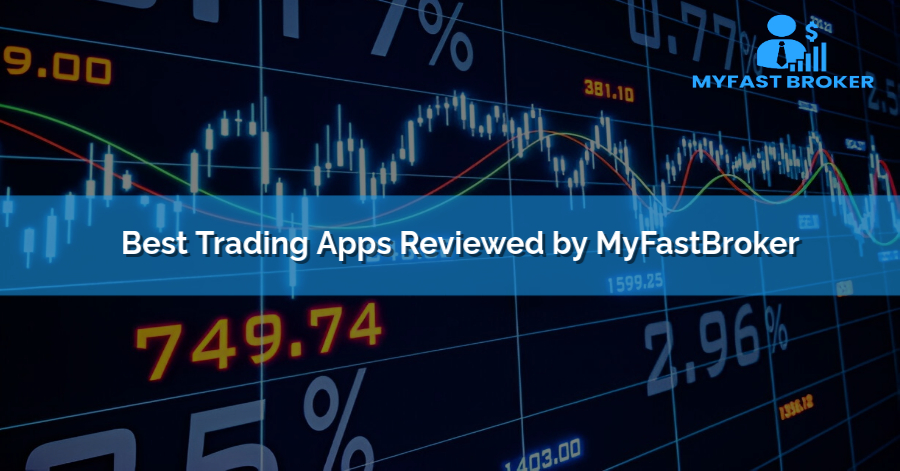
Here is a comparison of some of the top-reviewed apps:
| Trading App | Strengths | Weaknesses | Website Link |
| eToro | Social trading, copy trading feature, beginner-friendly. | Limited advanced charting tools. | Visit eToro |
| Binance | Best for crypto trading with low fees and extensive coin selection. | Can be complex for beginners. | Visit Binance |
| Robinhood | Commission-free stock trading, easy-to-use interface. | Limited investment options outside of stocks and ETFs. | Visit Robinhood |
| MetaTrader 4 & 5 | Best for forex and advanced trading tools, customizable indicators. | Steep learning curve for beginners. | Visit MetaTrader |
6. Understanding Trading Risks
Trading always involves risks, and it’s crucial to understand them before starting. Risks include market volatility, leverage risks, and liquidity issues. Many beginners underestimate these factors and lose money quickly.
To mitigate risks, traders should develop a strategy, use stop-loss orders, and avoid emotional decision-making. Risk management tools available in trading apps help traders set limits and monitor losses effectively.
Also Read: MyFastBroker Stock Brokers
7. Myfastbroker Trading Apps: A Reliable Guide for Traders
With numerous trading apps available in the market, finding the right one can be overwhelming. Myfastbroker Trading Apps provides traders with in-depth reviews, comparisons, and expert analysis, making it easier to select the best platform suited to their needs. By leveraging unbiased insights and detailed evaluations, traders can make informed decisions that align with their trading goals.
8. Advanced Trading Strategies
Successful traders often rely on proven strategies to maximize their returns. Advanced trading strategies involve analyzing market patterns, using technical indicators, and employing risk management techniques to make informed trading decisions.

One effective strategy is swing trading, which involves capturing short- to medium-term price movements. Another popular method is scalping, where traders execute multiple small trades throughout the day to accumulate profits. These strategies require a solid understanding of market trends and indicators like moving averages and Relative Strength Index (RSI).
Must Read: MyFastBroker Crypto Brokers
9. Regulatory Concerns in Trading Apps
Regulatory compliance is crucial when choosing a trading app. Governments and financial organizations establish regulations to protect traders and prevent fraud. Understanding these regulations can help traders select a secure and legally compliant trading platform.
For instance, in the U.S., trading apps must comply with Securities and Exchange Commission (SEC) and Financial Industry Regulatory Authority (FINRA) regulations. Similarly, in the European Union, brokers follow Markets in Financial Instruments Directive (MiFID II) standards. Always check if a trading app is regulated by a recognized authority to ensure fund security.
10. Risk Management Techniques
Risk management is an essential skill for traders looking to safeguard their capital. Without proper risk control, even experienced traders can face significant losses. The key to risk management is setting stop-loss and take-profit levels to control losses and secure gains.
Diversification is another critical technique. By investing in multiple assets, traders can spread risk and avoid being heavily impacted by a single market downturn. Utilizing proper position sizing, avoiding excessive leverage, and maintaining disciplined trading habits can significantly reduce risk exposure.
11. Tools and Indicators for Trading Success
Technical analysis tools and indicators play a crucial role in predicting market movements. Most trading apps offer built-in indicators that help traders identify trends and potential entry or exit points.
Some of the most commonly used indicators include:
- Moving Averages (MA): Helps smooth out price action and identify trends.
- Bollinger Bands: Measures volatility and potential price breakouts.
- Fibonacci Retracement: Identifies potential support and resistance levels.
- MACD (Moving Average Convergence Divergence): Helps in determining trend momentum.
12. Common Mistakes Traders Make
Even experienced traders make mistakes, but recognizing these errors can improve performance. Some common mistakes include overtrading, which occurs when traders place too many trades in a short period, leading to increased transaction costs and emotional stress.
Another common mistake is ignoring market news. Economic events, earnings reports, and global developments can significantly impact asset prices. Staying informed through MyFastBroker’s insights can help traders make better trading decisions.
13. The Role of Artificial Intelligence in Trading
AI has revolutionized the trading industry by improving market analysis, trade execution, and risk assessment. AI-powered trading bots can execute trades based on pre-programmed strategies, removing emotional bias from decision-making.
Machine learning algorithms analyze massive datasets to identify patterns and trends that might go unnoticed by human traders. AI tools also offer automated portfolio management, helping traders optimize their investments effortlessly.
14. Choosing the Best Trading App for Your Needs
With so many trading apps available, selecting the right one depends on your trading style and requirements. Day traders need apps with fast execution speeds and real-time data, while long-term investors prioritize features like portfolio tracking and research tools.
Consider factors such as fees, available assets, user interface, and customer support before committing to a platform. MyFastBroker’s comprehensive reviews provide valuable insights to help traders make the best choice.
15. Future of Trading Apps
The future of trading apps is driven by technological advancements. Blockchain technology is enhancing transparency and security, while decentralized finance (DeFi) platforms are offering more financial independence to traders.

Moreover, augmented reality (AR) trading interfaces and voice-activated trading are emerging trends that will further simplify market access and decision-making. Keeping up with these trends can give traders a competitive edge.
16. Final Thoughts and Recommendations
Trading apps have transformed how individuals participate in financial markets. While they provide convenience and powerful tools, success depends on knowledge, strategy, and risk management. MyFastBroker serves as a reliable source of insights and reviews to help traders navigate the complexities of trading apps.
Visit Our Homepage For more Insights
Summary
- Trading apps have made investing more accessible and affordable.
- MyFastBroker offers unbiased reviews to help traders choose the best platform.
- Understanding strategies, regulations, and risk management improves trading success.
- AI and blockchain technology are shaping the future of trading.
- Traders should always stay informed and continuously refine their strategies.
Frequently Asked Questions (FAQs)
- What is MyFastBroker?
- MyFastBroker is an informational blog that provides insights, reviews, and comparisons of various trading apps to help traders make informed decisions.
- Are trading apps safe to use?
- Most regulated trading apps are safe, but users should verify the app’s licensing, encryption, and security features before using it.
- Which trading app is best for beginners?
- Apps like eToro and Robinhood are ideal for beginners due to their user-friendly interfaces and educational resources.
- What fees do trading apps charge?
- Trading apps may charge commissions, spreads, withdrawal fees, and inactivity fees. Some apps offer commission-free trading.
- Can I trade without prior experience?
- Yes, but it is recommended to start with a demo account and learn trading basics before investing real money.
- What is the difference between stock and forex trading apps?
- Stock trading apps focus on buying and selling company shares, while forex trading apps specialize in trading currency pairs.
- How can I minimize risks while trading?
- Use risk management strategies like stop-loss orders, portfolio diversification, and avoiding emotional trading.
- Are AI-powered trading bots effective?
- AI-powered bots can analyze market trends quickly, but human oversight is still crucial for making strategic decisions.
- What is copy trading?
- Copy trading allows beginners to replicate the trades of experienced traders automatically.
- How do I choose the right trading app?
- Compare app features, fees, security measures, and user reviews to find the best app that suits your trading needs.
-
Crypto Broker10 months ago
MyFastBroker Trading Apps: Your Smart Guide to Trading Success
-
Crypto Broker10 months ago
MyFastBroker Trading Platforms: Your Path To Success
-
Insurance Broker11 months ago
MyFastBroker Insurance Brokers: Affordable Coverage Simplified
-
Loans Broker10 months ago
MyFastBroker Loan Brokers: Smart Borrowing Simplified
-
Insurance Broker11 months ago
MyFastBroker Insurance Broker: Your Guide to the Best Coverage in 2025
-
Insurance Broker10 months ago
MyWebInsurance.com Home Insurance: Affordable Coverage Guide
-
Insurance Broker11 months ago
MyWebInsurance.com Business Insurance: The Ultimate Guide In 2025
-
Mortagage Brokers11 months ago
MyFastBroker Mortgage Brokers: Best Brokers In USA 2025
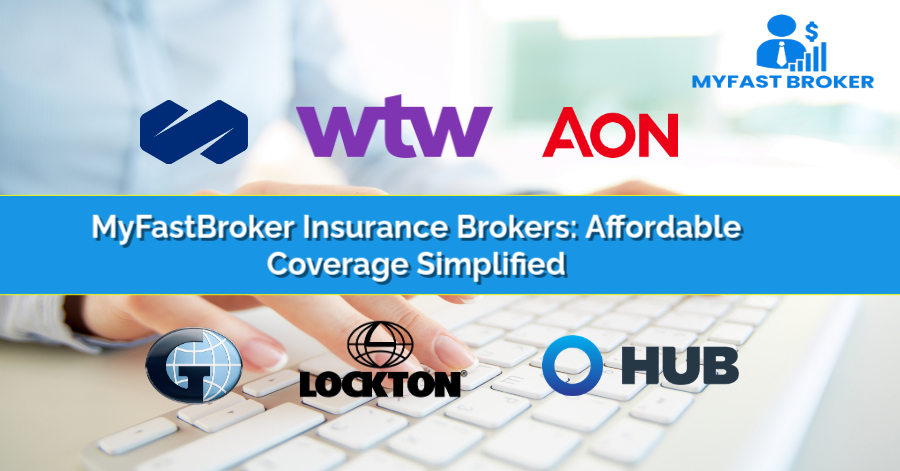





Pingback: MyFastBroker Insurance Brokers: Affordable Coverage Simplified
Pingback: MyFastBroker Loan Brokers: Smart Borrowing Simplified
Pingback: MyFastBroker Trading Apps: Your Smart Guide to Trading Success
Pingback: MyFastBroker Trading Platforms: Your Path To Success